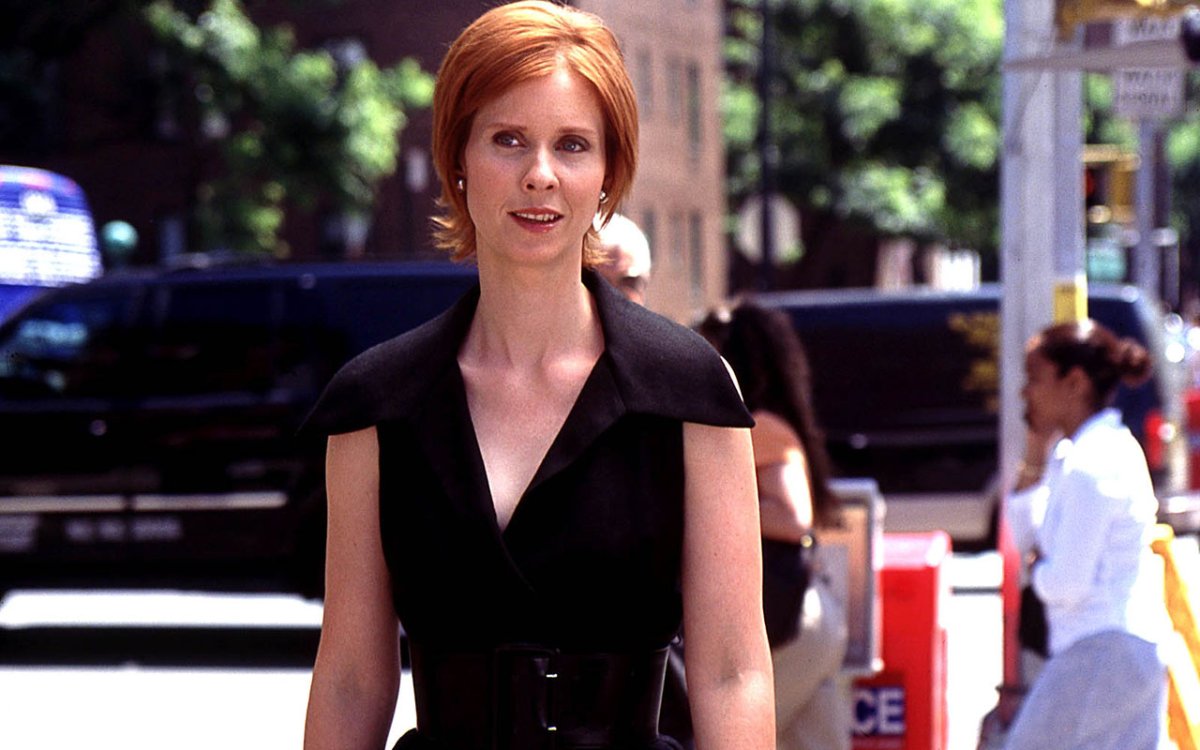Remember the Sex and the City episode where Miranda Hobbes, the red-headed lawyer of the HBO hit series, goes speed-dating and pretends to be a flight attendant?

Something similar happens in real life, according to a new study by researchers at the University of Chicago, Princeton University and Harvard University.
READ MORE: Why is this baby carrier designed for dad stirring controversy on Facebook?
The paper, which is upcoming in the American Economic Review and was recently previewed in the Harvard Business Review (HBR), concludes that many heterosexual single women face a perceived “trade-off” between playing up their career ambitions and being able to attract unmarried men.
“This trade-off can be pervasive and is not limited to big decisions like volunteering for a leadership role or asking for a promotion. Daily activities such as speaking up in meetings, taking charge of a project, working late, or even certain outfits, haircuts, and makeup can be desirable in one market and not in the other,” write the authors.
READ MORE: Here’s what Canadian women would be making in these jobs if they were men
The findings are based on two experiments the economists conducted with the students of an unnamed “elite U.S. MBA program.” Both strongly suggest that single women portray their professional goals differently when they’re in front of men compared to when they’re not.
- Gas prices surge in some parts of Canada. What’s causing pain at the pumps?
- ‘She gets to be 10’: Ontario child’s heart donated to girl the same age
- Indigo nears privatization but experts warn turnaround won’t be ‘quick fix’
- Bird flu risk to humans an ‘enormous concern,’ WHO says. Here’s what to know
In the first field experiment, a career counsellor asked the MBA students to fill out a questionnaire about desired compensation, hours of work and availability to travel, among other information. The survey, the students were told, would serve to help the school place them in a summer internship, which, as the authors note, would likely be “the key stepping stone” to their first job after graduation.
READ MORE: In an aging Canada, women need to save more than men — even if they make less
In some of the surveys, the authors inserted a set of instructions saying each student’s answers would be shared with the rest of the class. In others, the students were told the information would remain anonymous.
The results were striking. When students believed their answers would remain private, women who were in a romantic relationship and women who weren’t answered similarly. However, when students expected the questionnaire to be shared, single women lowered their salary goal from $131,000 to $113,000 on average. They also cut down on their stated availability to travel from 14 to seven days per month and reported preferring a shorter workweek.
The authors also placed a “placebo” question in the career quiz, which asked students to rate their writing skills. Remarkably, answers to this question, which was unlikely to be perceived as having any impact on single women’s attractiveness to their male classmate, showed no variation in the public and private settings.
READ MORE: Heartbroken and bankrupt: Why divorce can destroy your finances
Non-single women and men displayed no differences in the public and private treatments of the quiz.
In the second experiment, a small subset of students was asked to make choices about three pairs of hypothetical jobs. The class was split into smaller groups, with some of the single women participating in all-female groups and some in mixed-gender groups.
When placed in all-female groups, nearly 70 per cent of the single women said they would prefer jobs that required between 55 and 60 hours of work per week and paid a higher salary than a job that would require 45 to 50 hours per week. But when placed in groups with men, only 42 per cent of single women said the same.
READ MORE: Another perk for parents from budget 2017: flexible work arrangements
The authors also noted that unmarried female students had “substantially lower” class participation grades than married ones. Men’s participation grades, on the other hand, showed no correlation with marital status.
In the HBR article, the economists don’t delve into whether single women’s perception of a trade-off between career and marriage is justified, citing previous research that finds men prefer female partners who are less career-driven than they are.
READ MORE: The genius life hacks that working moms and dads use to get it all done
The authors, however, do wonder about the possible larger implications of the study.
“Many schooling and initial career decisions, such as whether to take advanced math in high school, major in engineering, or become an entrepreneur, occur early in life, when most women are single,” they write. “These decisions can have labour market consequences with long-lasting effects.”






Comments